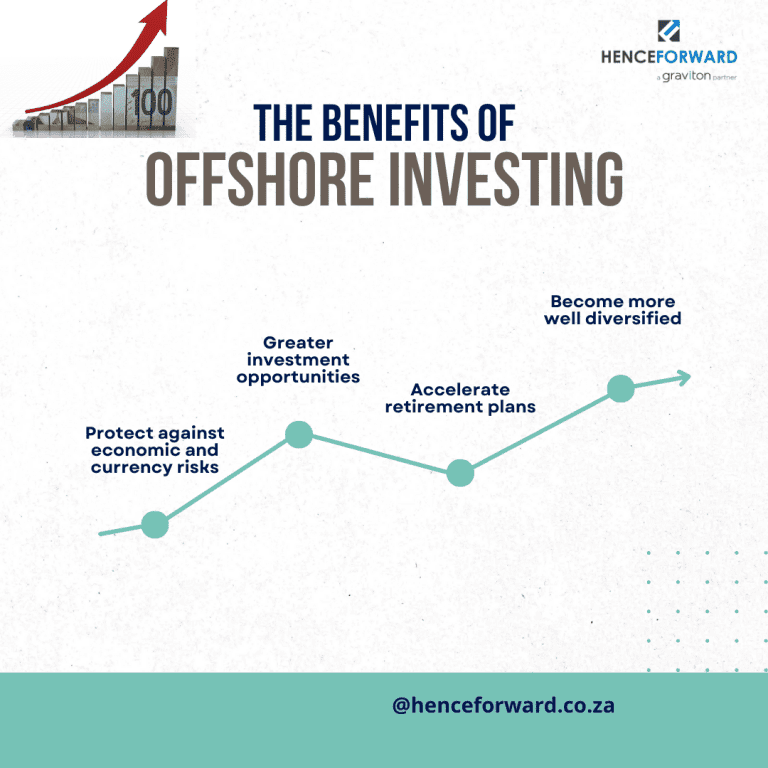Exploring Just How Spending Off Coast Works: A Comprehensive Overview
Investing offshore presents a complex landscape of possibilities and challenges. Recognizing the various sorts of offshore accounts is essential for anybody considering this path. The benefits, consisting of enhanced privacy and property protection, are substantial. Nevertheless, lawful and tax effects call for careful attention. As financiers look for to enhance their profiles, the actions to establish a practical offshore financial investment technique end up being important. What are the crucial elements that a person must navigate to do well in this venture?
Recognizing Offshore Accounts and Their Types
What drives individuals and companies to ponder overseas accounts? The appeal of financial personal privacy, asset security, and prospective tax advantages often draws in the attention of those seeking to handle their wide range much more tactically. Offshore accounts, typically established in international territories, come in different types. Personal accounts satisfy private requirements, supplying services like financial savings, investment, or retirement planning. Business accounts, on the various other hand, offer firms looking to facilitate international purchases, boost personal privacy, or enhance tax responsibilities. Trust fund accounts give an added layer of security, enabling individuals to protect their possessions for future beneficiaries. Each sort of overseas account provides distinct features, usually affected by the regulatory environment of the host nation. Comprehending these differences is essential for individuals and organizations, as the choice of account kind can significantly impact their economic approaches and conformity with global regulations.
Benefits of Offshore Investing
While several financiers seek possibilities to expand their portfolios, offshore spending presents unique advantages that can enhance financial development and security. One notable advantage is the capacity for asset security. Offshore accounts can protect financial investments from political instability or economic downturns in the capitalist's home nation. Additionally, overseas investments frequently provide accessibility to global markets, allowing capitalists to touch into arising economic climates and sectors that might not be offered domestically.Another considerable benefit is tax effectiveness. Many offshore territories offer positive tax regimens, which can reduce tax responsibilities and improve general returns. Furthermore, offshore investing can boost personal privacy, as certain territories implement stringent confidentiality laws.Lastly, offshore accounts can promote riches administration techniques by giving a wider series of financial investment alternatives, consisting of different possessions such as realty and commodities. Jointly, these advantages make overseas spending an attractive option for those looking to enhance their monetary portfolios.

Lawful and Regulative Factors to consider
Guiding via the regulative and legal landscape of overseas investing calls for careful focus and understanding. Investing Off Shore. Financiers must browse a complex web of regulations that vary markedly from one jurisdiction to an additional. Conformity with local regulations is vital; failure to do so can lead to serious fines, including fines and jail time. Additionally, knowing the legal structures governing foreign investments is necessary for guaranteeing the security of assets and preserving functional legitimacy.Key considerations include recognizing the regulatory needs for developing offshore entities, such as counts on or corporations, and sticking to anti-money laundering (AML) and know-your-customer (KYC) laws. Capitalists must also know reporting commitments in their home country, as lots learn this here now of countries call for disclosure of offshore holdings. Engaging with lawyers experienced in offshore investment can supply indispensable advice, aiding capitalists to alleviate risks and protected compliance with appropriate legislations and policies while optimizing their financial investment capacity

Tax Effects of Offshore Investments
Comprehending the governing and legal considerations of overseas investing normally causes an exam of the tax effects connected with these investments. Offshore financial investments can use considerable tax benefits, consisting of reduced tax prices and the potential for tax obligation deferment. Investors need to browse intricate tax obligation regulations in their home countries, as numerous jurisdictions call for taxpayers to report international income and assets.For U.S. citizens, the Foreign Account Tax Compliance Act (FATCA) mandates the reporting of offshore accounts, while other countries have similar requirements. Failure to conform can lead to serious charges. Additionally, particular offshore funds may go through distinct tax therapies, such as Passive Foreign Investment Firm (PFIC) regulations, complicating financial investment strategies.Investors ought to think about seeking advice from tax obligation experts to comprehend effects specific to their situations and guarantee conformity with both worldwide and residential tax obligation legislations, inevitably making the most of the advantages of their offshore financial investments while minimizing risks.
Actions to Obtain Started With Offshore Investing
Numerous financiers looking for to expand their profiles turn to offshore investing as a viable alternative. To start, one have to perform complete research study on potential overseas territories, thinking about elements such as governing setting, tax, and financial investment possibilities. Investing Off Shore. After choosing an ideal location, investors must establish an offshore account, which commonly calls for paperwork confirming identification and resource of funds.Next, financiers usually engage with an offshore financial investment or a financial consultant company knowledgeable about neighborhood legislations and market characteristics. This partnership can assist in crafting a tailored financial investment strategy that lines up with private objectives and take the chance of tolerance.Once the method remains in area, investors can proceed to choose particular possessions or funds for financial investment, ensuring they examine efficiency and takes the chance of frequently. Finally, preserving conformity useful site with both local and home nation regulations is necessary for effective offshore investing, calling for recurring diligence and potentially regular consultations with legal experts
Frequently Asked Inquiries
Just how Do I Choose the Right Offshore Territory?
Picking the ideal offshore territory involves reviewing variables such as regulative environment, tax advantages, political stability, and simplicity of operating. Researching each choice thoroughly ensures enlightened decisions that straighten with private financial investment goals and take the chance of resistance.
What Types of Assets Can I Hold Offshore?

Are There Risks Related To Offshore Spending?
The dangers connected with offshore investing consist of legal complexities, regulative adjustments, money fluctuations, and prospective political instability. Financiers need to meticulously examine these elements to minimize risks and assurance conformity with global regulations and regulations.
How Can I Access My Offshore Funds?
To accessibility overseas funds, people generally require to call their economic institution, offer essential recognition and paperwork, and adhere to well established protocols for fund transfers, making certain compliance with both international and neighborhood laws controling overseas Website investments.
What Prevail Misunderstandings Regarding Offshore Accounts?
Usual misconceptions regarding overseas accounts consist of ideas that they are entirely for tax obligation evasion, lack of policy, or available to the affluent. In truth, they can be genuine monetary tools for diverse individuals. Furthermore, overseas financial investments usually give accessibility to international markets, enabling capitalists to touch into emerging economies and sectors that might not be available domestically.Another substantial benefit is tax obligation effectiveness. Offshore investing can boost personal privacy, as particular territories apply stringent privacy laws.Lastly, overseas accounts can assist in wide range monitoring techniques by giving a bigger array of financial investment choices, consisting of different properties such as actual estate and assets. Recognizing the lawful and regulative considerations of offshore investing normally leads to an evaluation of the tax effects associated with these financial investments. Offshore investments can offer significant tax benefits, consisting of minimized tax rates and the potential for tax obligation deferment. After choosing a suitable location, investors ought to establish an offshore account, which usually requires documentation showing identification and source of funds.Next, investors often involve with an economic consultant or an overseas financial investment firm familiar with local regulations and market dynamics.